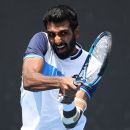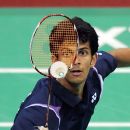When news of a trainer in the Women’s T20 Challenge-bound contingent testing positive first broke last month, Jemimah Rodrigues remembers darting across her Mumbai hotel room to answer a video call.
“Two of my friends (fellow players) were on the call and they told me what had happened,” Rodrigues, top order mainstay of two-time champions Supernovas, tells ESPN, “All of us were trying to look brave…playing it cool and encouraging one another to not overthink it…But on the inside, I won’t lie to you, we were an anxious mess. Two of our key players had traveled to Mumbai sitting on adjacent seats to the member who’d tested positive. We didn’t know if it had spread through the camp. It’s the kind of thing you always anticipate could happen. Yet when it does, you’re never quite prepared for it.”
It eventually turned out to be the only positive case in the 50-odd group of players and support staff between the time the women’s cricket teams were isolated for nine days in Mumbai and the end of the tournament in UAE earlier this month.
1 Related
Start to finish, members of all three teams lived out a 15-day quarantine period cumulatively in two cities and underwent at least nine PCR tests – for a four-day tournament.
Welcome, to the brave new world of sport.
Athletes across disciplines who’ve traveled for tournaments in the past few months since the pandemic arrived, have their own unique stories to tell. There are recurrent themes though that we run into quite so often – the necessity of meticulous travel planning, cumbersome paperwork to hop over, ever-changing visa protocols that even Google hems-haws over, in-game reflexes that have been suddenly robbed of a vent and the disappearing social dimension of tours.
THAT FEELING!! 😍🥳 https://t.co/ivBl7f3Rz6
– Jemimah Rodrigues (@JemiRodrigues) October 27, 2020
Rohan Bopanna, the world no. 39 doubles player, has run through them all in the past four months. He’s played six tournaments in as many cities, with four different partners (thanks to smaller draws and steeper cutoffs), has had roughly 40 Covid tests and reached three quarterfinals and one final since August this year. “The only time you step outside is to travel to another city but otherwise it’s just going to the tennis court and back. In my last three weeks of travel, I barely stepped outside, barely saw the sun,” he says.
“Every airline was different. Some of them kept the middle seats empty, some others stipulated that passengers seated in the middle seats wear the full PPE suit, others had every seat occupied, running a full flight with masks on. I even took a train in between from London to Paris… Also, every tournament had a different degree of testing. In the USA, we were doing the nose swabs ourselves. It’s been one hell of an experience traveling around the world and not knowing what awaits me. It was also the first time I didn’t have to worry about friends and family asking me for match tickets. Of course, playing without spectators was no fun.”
Initially, G Sathiyan found the eerie silence in empty playing halls quite discomfiting. The world no. 32 table tennis player made a successful return to competitive sport after 224 days, in October. Sathiyan won all four matches he played for his side, Sokolow SA Jarosalawat, at the Polish Superliga.
Of course, as opposed to previous tournament experiences, this was vastly different – umpires with gloves, players picking up stray balls and being instructed to keep hands off the table. The latter was the most challenging stipulation for the Indian. “I tend to sweat a lot so it’s a habit to wipe my palms on the table before serving or receiving. Or it’s tough to have a grip on the racket. It also buys me a moment to catch my breath. Usually, we’re allowed to towel every six points but since wiping on the table wasn’t allowed, we could towel every two or three points. I still ended up wiping on the table a few times.”
“To make up for no spectators being present, they had music and drums playing on speakers,” he says, “Matches were held in different cities, so our coach drove our four-member team in his private car. The tournament went really well for me but the last few days were scary. Cases had shot up in Poland and everything was shut. Shops were closed, you couldn’t go out and eat anywhere. The only option was to place an order through call. Language was a problem, but thankfully my Polish friends pitched in with help.” He then flew for two days from Warsaw to Chennai, with a 14-hour layover in Paris.
Earlier this week, Sathiyan reached Tokyo to represent the Okayama Rivets in the T-League. He will play eight matches for the club, with the first scheduled on December 10. He’s relieved to not have to serve a rigorous 14-day isolation. “I’ve already started training in a private club close by, where I go every day for a two-hour session. It’s a small club with one table and I’m provided with one sparring partner. I’m allowed to step out within 1 kilometer radius of my accommodation to buy groceries and visit restaurants.”
For Prajnesh Gunneswaran, who recently upstaged Sumit Nagal to the India no. 1 men’s singles player distinction, it’s been a conscious switch from air to road travel, wherever possible. The 31 year-old made two ATP Tour Challenger finals in the USA in the last two weeks.
“I’m taking as many precautions as possible,” he says, “I’m not getting food delivered, rather I’m just picking it up myself. Over the last few months, instead of flying commercially, I’ve started driving from one tournament to another. I’ve been travelling around Europe this way. It gets a little tedious at times but luckily I have my wife travelling along with me. It’s unusual, because normally as a tennis player, you don’t really get to see the country you are playing in. You usually just travel from the airport to the hotel and then the stadium. It’s very different travelling by road.”
Some players though have been less fortunate in their travels. Three Indian badminton players – Lakshya Sen, Ajay Jayaram and Subhankar Dey were forced to pull out of the SaarLoxLux Open Super 100 in Germany last month after Sen’s father tested positive. The Indian players had pointed out that it was an unfair call by the organizers to only ask them to withdraw from the tournament when they’d traveled together in a bus carrying 10-15 other players.
“Before the tournament, I feared what would happen if someone were to test positive,” says Jayaram, “Would there be an active protocol followed? Clearly, it wasn’t the case in Germany. The organizers were absolutely clueless on how to handle the situation. It was like watching my worst nightmare come true.”
Jayaram managed to compete in only one event – Denmark Open – of the three he’d planned for himself. He was asked to isolate after his first-round win at the SaarLoxLux Open and the French league, the other tournament he was supposed to be a part of, was later pushed to January 2021.
In addition to staying cooped in hotel rooms almost 20 hours a day, Bopanna calls the ‘no high-five and fist bump’ stipulation among the trickiest to keep up with religiously on court. “It’s an instinct,” says the 40-year old, “When you play a good point you’re not thinking, ‘oh I must do a racket tap’. Sometimes the referees would have to remind us. They had two refrigerators with water and energy drinks to make sure each pair only used the one assigned to them. There were also towel racks numbered 1 and 2, so even when we changed sides, we put our towels on the rack assigned to us at the beginning of the match. For me, that didn’t make much of a difference because I never really take a towel and keep it at the back. But definitely the racket taps took a while to get used to.”
Rodrigues agrees. “At times, we forgot about social distancing when we were out there on the field, caught in the moment. We did get away with it a few times too. The kind of bio-bubble that was created did feel really safe though. Even the ground staff weren’t allowed to touch the ball or come near us. We had to jump over and get it ourselves.”
In squash, players even went as far as wiping their own sweat off the floor. The PSA World Tour resumed in September this year with four tournaments being played so far. World no. 13 Saurav Ghosal lived out of the suitcase for 33 days, with a week of isolation in Dubai thrown in between, competing in two events – CIB Egyptian Open and Qatar Classic. He lost in the last 16 in Egypt and suffered a right adductor strain in his first-round match in Qatar.
“We couldn’t practice on the courts unless a specified time and vehicle was allotted to us which was quite rare,” he says, “I found it difficult to enter an alien court on the day of the match and be able to produce top-quality squash against some of the world’s best players. We couldn’t stay back and watch other matches once ours finished either. We did though slowly get used to not wiping our hands on the walls since we’d been practicing it for a bit.”
Despite being cut off from other players in individual hotel rooms, drawing up an online schedule and sticking to it helped, says Rodrigues. In Mumbai, they hired weights, set up a Zoom routine and did workouts in their rooms. In Dubai, since they didn’t have any equipment, they focused on bodyweight exercises.
“I spent a lot of time with my guitar, made a few videos, apart from praying and reading the Bible,” she says, “As long as we were getting to play, we were okay with how many ever tests, how many ever days in quarantine were needed from us because none of us had been away from the game for so long. We just wanted to do whatever it took to be on the ground and play those matches.”
The experience also summoned a renewed appreciation in the 19 year-old. “I’ve always loved cricket,” says Rodrigues, “but this whole time away from it made me realize what my life would look like without it. When I got to Dubai, it struck me that I’ve never longed to walk into a cricket field as much before.”
For Ghosal, the learnings have been dredged from episodes of being confronted with the prevalent reckless attitude worldwide toward the virus. “I’d stayed back in Egypt for a while after the tournament and visited the club every day to train. I wore a mask at all times and only took it off when I was playing. People around me looked at me like I was some sort of crazy bandit. They were like ‘Man, the tournament is done, the PSA bubble is over, why are you still wearing a mask?’ I was like, ‘I’m doing it for myself. I’m scared, my friend’. That’s one thing I’ve learnt. You don’t have to wait for protocols to stay safe. You have to look out for yourself even if everyone else around tells you it’s OK not to.”
Heading into his final couple of years in competitive sport, the 34 year-old finds it hard to reconcile with the current transfigured nature of the tour. “As players in an individual sport, there’s a lot we draw from the camaraderie with peers-turned close friends at tournaments. Now, you barely get to meet anyone. The social aspect of tours has completely vanished. It’s just you, going from tournament to tournament in a vacuum.”



